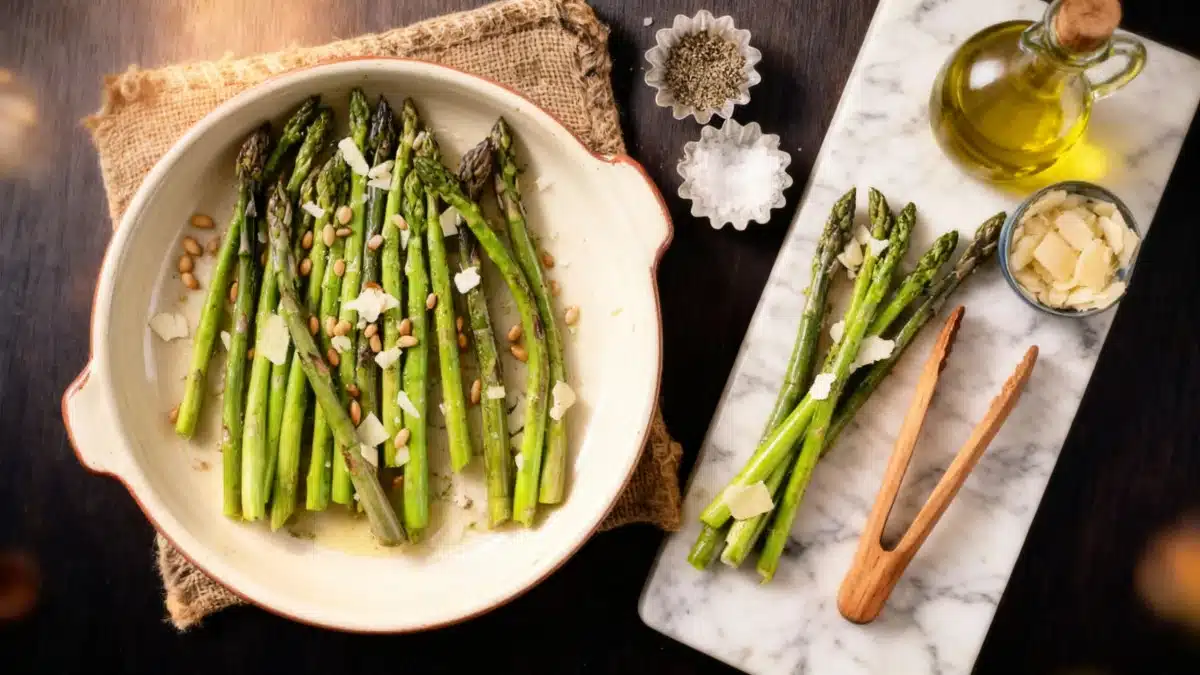Every spring, asparagus enthusiasts eagerly await the arrival of those crisp green, white, or purple spears, dreaming of risottos, savory tarts, and fresh salads. Yet for all the love this vegetable gets, asparagus is a little (okay, a lot) divisive. Some can’t get enough, while others run the other way, haunted by memories of that unwelcome bitter taste. The good news? That bitterness isn’t a permanent life sentence. Let’s uncover the mistakes you should dodge (and the chef-approved solutions to embrace) so you can finally enjoy asparagus at its glorious best.
Why Do People Turn Up Their Noses at Asparagus?
Believe it or not, asparagus is one of those veggies—like broccoli or zucchini—that splits the food world right down the middle. While some welcome it gleefully as soon as it hits the market, others would prefer to leave it right there on the shelf, refusing to even consider asparagus risotto or a crisp tart with green spears. When you ask the naysayers why, there’s one answer that unites them: bitterness. And fair enough—when it’s not cooked the right way, asparagus can indeed have an off-putting, slightly bitter aftertaste that sends forkfuls uneaten and plates unfinished.
Chef Secrets for Banishing Bitterness
If you’re thinking all hope is lost, relax: bitterness is not destiny. There are actually some clever, classic techniques to neutralize that (in)famous taste. Frédéric Poulart, producer and manager of Langevine bio, shared his own methods for making asparagus lovable even to the most skeptical palates. With his tips, you might just change your mind—just don’t dawdle, as asparagus season is heartbreakingly short!
- Understand Regional Variations: Poulart explains that bitterness is partly terroir and partly variety-dependent—the degree of pungency changes depending on where the asparagus is grown.
- Use Sugared Water: A tried-and-true trick is to cook asparagus in sugared water to take the edge off its strong flavor.
- Cook with Other Vegetables: Letting asparagus simmer with other veggies helps mellow out its bitterness too.
- Peel and Trim Smartly: The white-ish base (the « foot ») of the asparagus contains much of the bitterness. Peel the spears well and be generous when trimming off the bottoms. No one will thank you for a fibrous, bitter bite!
- Add Creaminess: Incorporating crème fraîche or mascarpone brings smoothness and rounds off any lingering sharpness, amping up the indulgence and toning down bitterness.
Make Your Asparagus Sing: Enhancing Mild Flavors
The truth is, asparagus tends to have a pretty mild, neutral taste—and that means you’ll have to work a little culinary magic to bring out its best. It’s really not just about seasoning, but about the whole approach:
- For White Asparagus: Poulart recommends simply boiling it in salted water. Simplicity amps up subtle flavor and prevents overwhelm.
- For Green Asparagus: sautée it or roast it in the oven, dressing it up afterward with plenty of fresh herbs for an aromatic lift.
- Add a Zesty Touch: Lemon juice is a natural companion for asparagus. It brightens the flavor and brings a burst of freshness to every bite.
- Spice It Up: A sprinkle of chili flakes adds a cheeky hint of heat—and just the right touch of adventure.
- Sauces for the Win: Don’t overlook a good sauce! From béchamel to hollandaise, beurre blanc, or à la flamande, there are plenty of sauce options to complement your pile of spears and transform the whole eating experience.
Bonus Tips: Picking the Right Variety and Final Word
If you like dishes with real personality, Poulart gives a nudge: work more with green asparagus, as he does in most of his own recipes. Green spears tend to be especially versatile and rewarding for those who want a flavor punch without bitterness stealing the show.
To sum up: never let the reputation of asparagus scare you off. With a little prep and a few tricks—peeling well, trimming the base, sweetening the cooking water, favoring creamy additions, and bold seasoning—your asparagus will be as inviting as spring itself. And don’t forget: the season is short, so grab those spears, sharpen your peeler, and get cooking. Your taste buds will (finally) approve.

John is a curious mind who loves to write about diverse topics. Passionate about sharing his thoughts and perspectives, he enjoys sparking conversations and encouraging discovery. For him, every subject is an invitation to discuss and learn.






